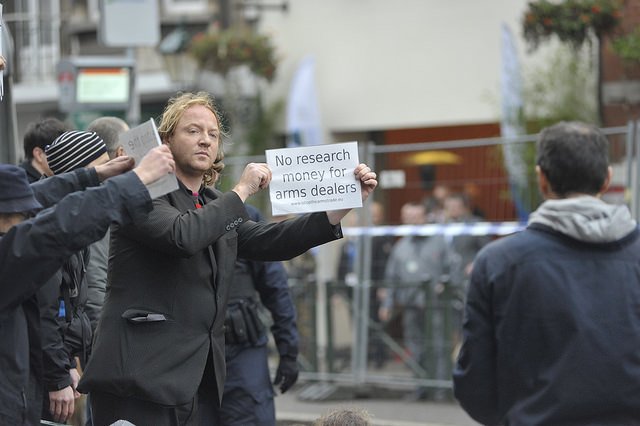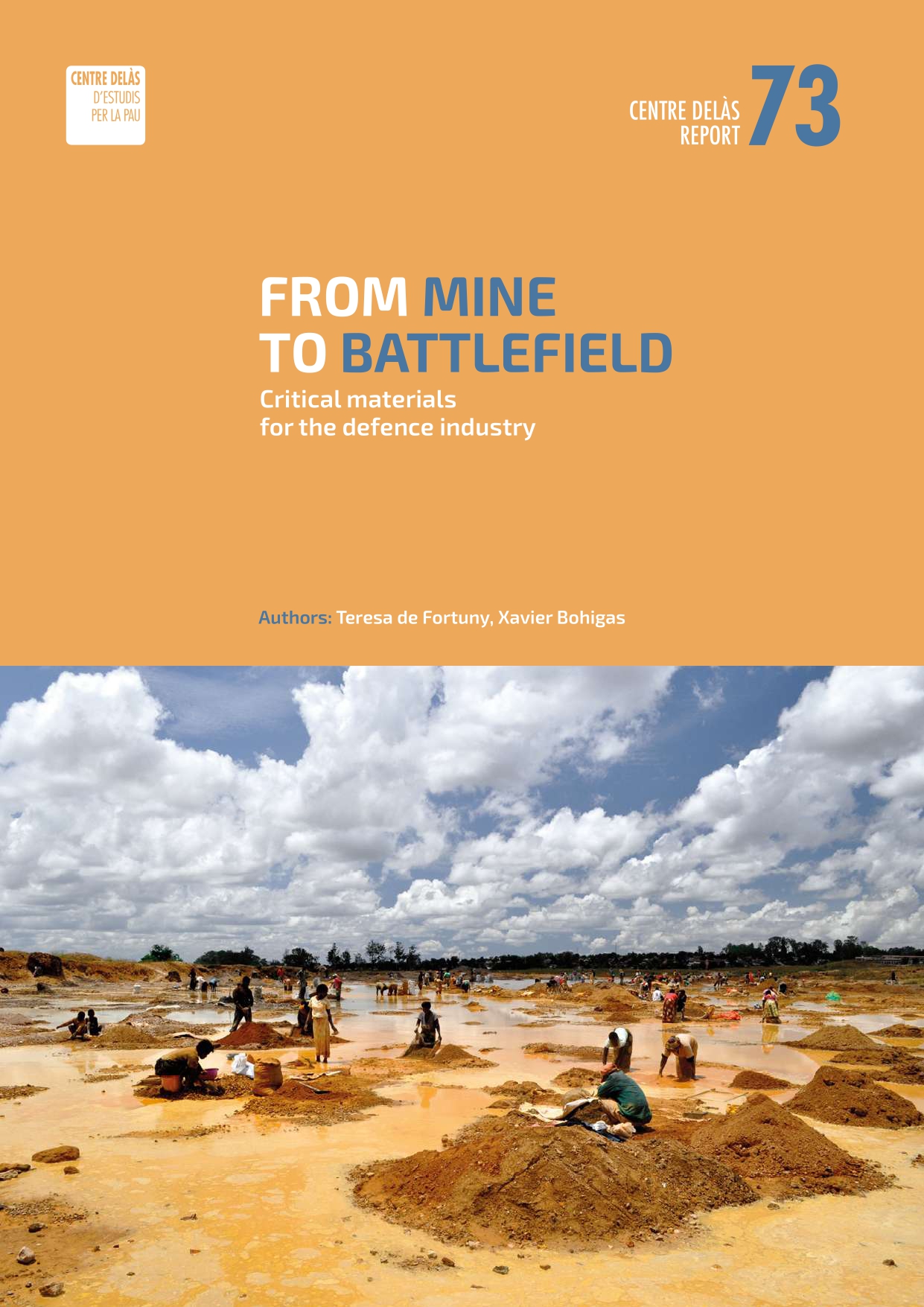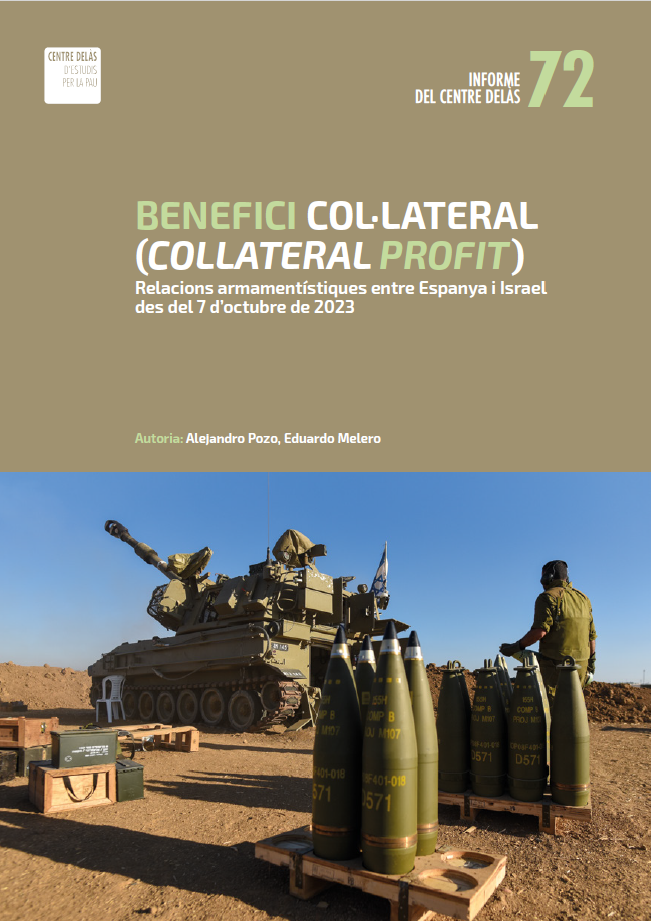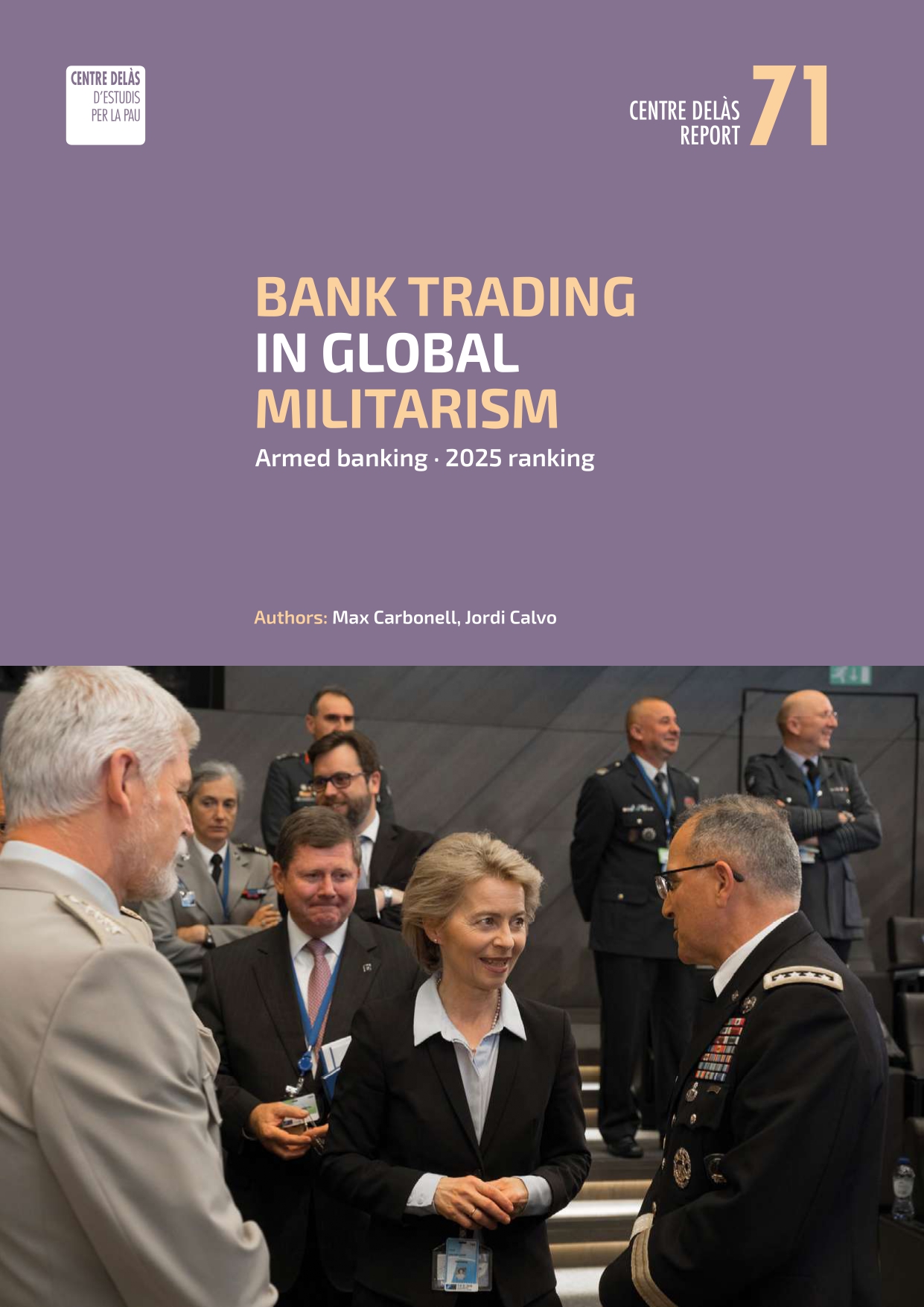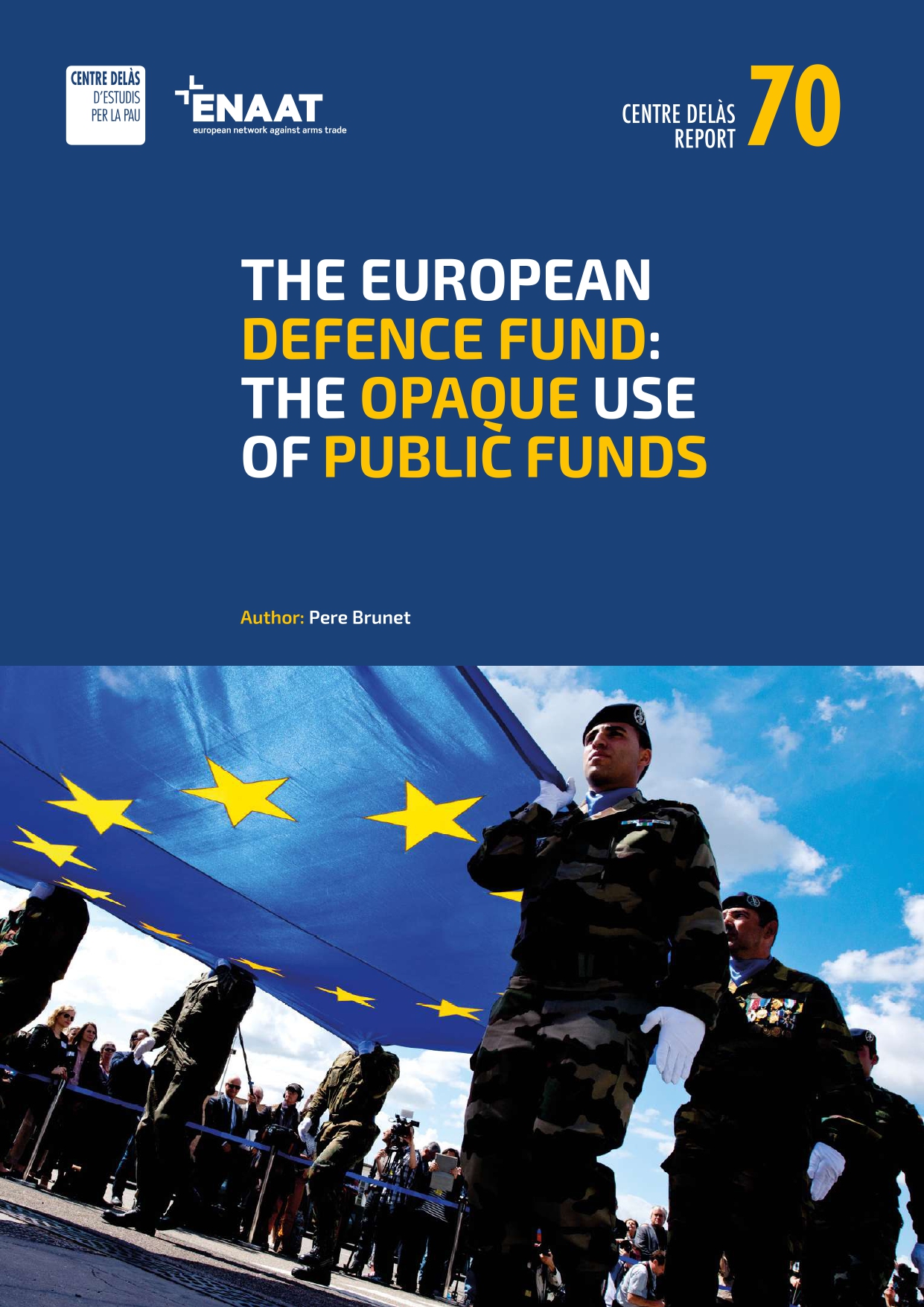Over 700 researchers call on colleagues “let’s speak out against an EU military research programme”
Today the joint European initiative researchers for peace has been launched by different groups of concerned researchers and peace organisations. Over 700 scientist and academics from 19 EU countries invite their colleagues to sign the online pledge and to call on the EU to stop funding military research.
The EU is budgetting billions of euros for military research and the development of arms. Tomorrow EU member states will meet in Brussels to discuss defence issues and migration. The European Defence Fund, which would pour 13 billion euros into military research, tops the agenda.
The 700 researchers warn for the consequences of an R&D programme for new arms technology. “The establishment of an EU military research programme points towards an unprecedented acceleration in the militarisation of the EU,” says Stuart Parkinson from Scientists for Global Responsibility. “Investing EU funds in military research will not only divert resources from more peaceful areas, but is also likely to fuel arms races, undermining security in Europe or elsewhere”.
Making choices
The researchers fear that the military R&D programme will divert resources from other research areas. “Europe has a long tradition of scientific innovation and EU research programmes have shown to be a powerful policy tool. But Europe has to make choices on what kind of research to fund. Every euro can only be spent once, ” says Jordi Rufanges from the Spanisch research institute Centre Delas. “The EU should continue to invest in civilian research areas that improve our quality of life, helping to solve health and environmental problems, and contributing to stability and equality in society.”
“The EU should instead fund innovative research which helps to tackle the root causes of conflict and contributes to the peaceful resolution of conflict.”, Rufanges continues.
Killer robots
The military technologies developed now will shape the wars of the future. The European Union has already started developing autonomous systems through the so-called Preparatory Action on Defence Research.
Despite warnings from both the scientific community and the European Parliament, these decisions to develop autonomous weapons are taken without any public debate. The European Union risks exacerbating a global arms race in robotic weapons and drones. And what’s more: there’s a risk that this could lead to an increase in arms exports to repressive regimes and fuel conflict. Already EU-made weapons are facilitating violations of international humanitarian law and human rights in a number of conflict zones.
These investements in military R&D will not increase peace and security. On the contrary, they will only worsen global tensions. In the meantime, scientific research which might actually contribute to preventing violent conflict is being neglected.
About the pledge
The EU is budgetting billions of euros for military research and the development of arms.
We invite all scientists, academics and researchers to speak out and call on the European Union to stop funding military research.
Sign the pledge: www.researchersforpeace.eu
EU money for military research?
In late 2016 the European Commission launched her plans for a European Defence Fund. This fund developed out of a multitude of proposals, some of which have already been launched but most have not yet been approved.
At the time of writing the European Defence Fund looks as follows:
- The Pilot Project and the Preparatory Action on Defence Research (PADR) are the first programmes which are already being implemented. Both are military research programmes. The Preparatory Action serves as a precursor to a European Defence Research Programme (EDRP) starting from 2021 and lasting till 2027. The EDRP, which would encompass 4.1 billion euros, still has to be approved by the European Parliament.
- Moreover, the European Commission in June 2017 proposed a European Defence Industrial Development Programme (EDIDP). The vote on the DIDP will take place on the third of July. The EDIDP is aimed at the development of new cooperative weapon programmes and the procurement of these weapons by Member States. Contrary to the military research programmes, the EDIDP would mainly be financed by EU Member States. Again the Commission wants to launch a smaller version of the EDIDP for 2019-2020, encompassing half a billion euros in EU funds and two billion in member state contributions. For 2021-2027 the aim is to have a fully fledged EDIDP of 8.9 billion euros.To stimulate Member States to contribute, the Commission proposes an exception to the Stability and Growth Pact, which means Member States do not have to take the procurement of weapons through the European Defence Fund into account in their budget deficits.
Further reading
Some articles, reports and official information about the state of play of the EU military research programmes.
A overview of the EU military research plans by Scientists for Global Responsibility: http://www.sgr.org.uk/resources/eu-moves-military-science-and-technology
A Q&A by the European Network Against Arms Trade (ENAAT) on the European Defence Fund: http://enaat.org/eu-defence-fund
The peace organisation Vredesactie has published a report about how the European Defence Fund was influenced by the defence industry: http://istopthearmstrade.eu/en/mapping-arms-trade?securing_profits
An article by Nature on the shift in focus by the EU to fund military research: https://www.nature.com/news/peaceful-european-union-starts-to-fund-military-research-1.21212
Factsheet by the Dutch organisation Stop Wapenhandel on the European Defence Action Plan: http://www.stopwapenhandel.org/EUMoney
An overview of official documents related to the European Defence Fund:
- The proposal for a European Defence Fund
- The European Defence Action Plan
- The report published by the Group of Personalities on Defence Resear

